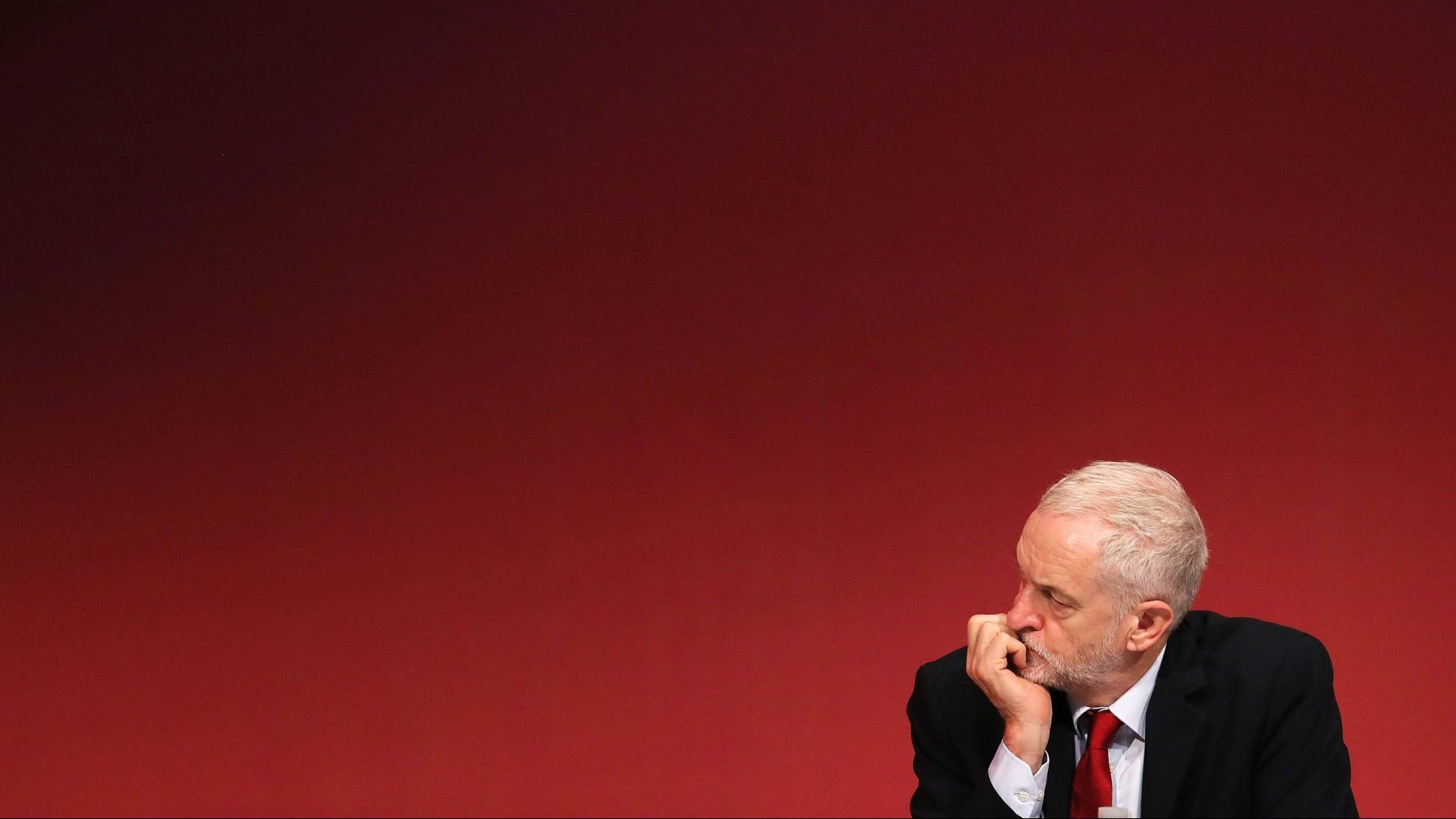Last week a YouGov poll put Labour on 47% – some 27 points ahead of the Tories. That’s the good news, even if it’s an outlier. The bad news is that Jeremy Corbyn is said to be mulling the launch of a new left wing party, which – if it stands candidates beyond his own constituency of Islington North – could dent the size of Labour’s majority.
It would, on the face of it, be the left’s best chance in decades of creating something significant. Tiny Leninist groups are seeing their placards carried in record numbers on the Palestine solidarity demos.
But I hope Corbyn will think again. In October he told colleagues he was worried he might become a “prisoner” in such a party. And he was right. Whatever precautions he takes, such a party would be a magnet for overt antisemites, Putin acolytes, the British fan-club of Bashar al-Assad and an army of single-issue obsessives.
However, there are reasons why temptation might prove too great. On January 8, Germany’s Left Party – with 38 members in the Bundestag – split, with the charismatic MP Sahra Wagenknecht forming a new party that instantly polled 14%. Wagenknecht’s personal brand is one of the strongest in German politics; she has gained immediate momentum and 10 MPs.
If Corbyn wanted to do something similar, he might stand 15 or 20 “Peace and Justice” candidates in nominally safe Labour seats where Muslim councillors have quit the party over Gaza. He might gain support from the RMT, which already backs far-left electoral candidates. For infrastructure, there is no shortage of sympathetic campaigns, with email lists running to hundreds of thousands.
Though no other Labour MP could join him in this parliament, on pain of deselection, it’s not hard to imagine that a few might collaborate with him in the next, if he were to retain his seat due to local loyalties. He would then have something bigger than Reform UK: a parliamentary group, the backing of trade unions, a mass anti-war movement and some big social media figures – all capable of putting pressure on the incoming Labour government. And if the BBC’s bosses were as generous to Corbyn as they are to Reform UK, that would do him no harm.
The response of Labour officialdom is to hope it doesn’t happen. But the prospect should be worrying Labour more than it is. Because suppressing something is not the same as winning the argument against it. And Labour still needs to win an argument with its own electoral base, even as it tries to seal the deal with 2019 Tory voters.
Labour’s programme for government revolves around “securonomics”. The tax take is the highest it has ever been; debt is close to 100% of GDP, and with the fiscal fragility created under Liz Truss, the case for borrowing depends on the likelihood of growth. So everything depends on whether Rachel Reeves’s supply-side reform agenda works.
Success will depend on whether a mixture of planning reform, industrial strategy, pension fund regulation, a skills revolution and the financial “de-risking” of green energy investment can kickstart growth. That, plus NHS modernisation and a serious attempt to attack street crime, is the essence of Labour’s five missions.
The left’s response to securonomics has been muted. Its economists prefer a “big green state” to the measures needed to de-risk infrastructure and energy spending, and many still cling to the idea that you can tax and borrow your way out of the hole we’re in.
I want to persuade those tempted by the idea of a new left party that the Starmer project is a better bet. First, because progressive politics is under attack on all fronts: Brexit, the prospect of Trump 2.0, Russia and Iran waging existential war on western values, and the return of open antisemitism under the guise of “anti-Zionism”. Corbyn has shown himself fatally weak on all such issues.
Around 80% of voters in Islington North backed a second referendum. Corbyn opposed it for as long as he could. He continues to associate with people calling for the destruction of Israel, and with left activists who openly support Putin’s war aims. He has waged a Europe-wide campaign to stop arms reaching Ukraine.
In this global crisis of democracy, social democracy needs to draw a line between itself and those on the left who think it’s cool to side with dictatorships. And fine, if you want a Leninist party go ahead – but don’t pretend that has any continuity with what some of us tried to achieve in Labour between 2015 and 2019.
Second, because from Day One of a Starmer government, an alliance of far-right populists, alt-media groups and Putin-friendly millionaires will be at war with it. They are already ramping up campaigns against abortion, refugee rights and climate science. This won’t be a re-run of Blairism, where the business elite swings behind Cool Britannia 2.0: the left will need to actively defend the agenda of a Labour government.
Third, and most importantly, because the securonomics agenda is right. If you think the markets treated Liz Truss harshly, wait until you see what they would do to a Labour government that tried to borrow its way to socialism. We need urgent progress towards clean energy, we need to re-industrialise and re-arm to meet the Russian threat. There is a left wing version of securonomics that sees the state playing a more directive role, and it may be needed if capital is slow to respond to the derisking strategy on offer.
But Starmer’s project is the only rational way to stop a further lurch to the right in British politics, and to address the continuous economic insecurity working-class people face. I want a left that’s part of it, not an opposition to it.




